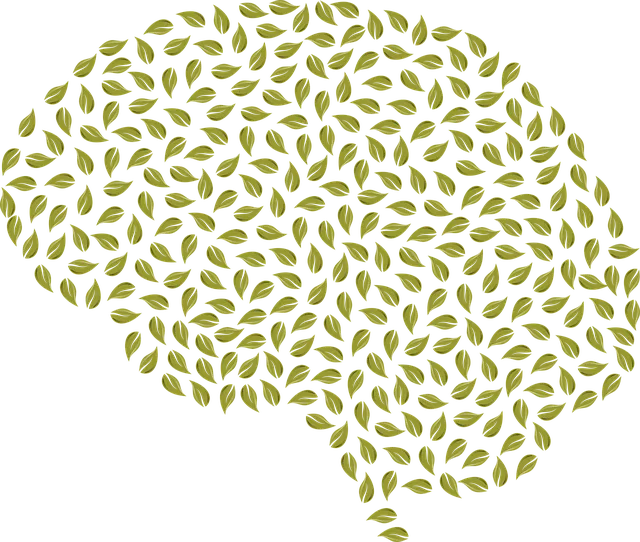In today's media landscape, accurate representation of mental illness is vital, especially in Northglenn where Kaiser provides comprehensive mental health coverage. This representation impacts public perception and understanding of mental health challenges. Kaiser's diverse services, including therapy and crisis intervention, destigmatize mental illness and support those seeking help. Media can reduce stigma by portraying nuanced, compassionate narratives, inspiring hope and encouraging access to care, like Kaiser's offerings in Northglenn. Streaming platforms offer unique opportunities to address mental health issues accurately, while community initiatives in Northglenn transform support through education, support groups, and advocacy for expanded mental health coverage.
In today’s media landscape, accurate representation of mental illness is more crucial than ever. This article explores the current state of mental health portrayal in media and its impact on society, with a focus on understanding the challenges and presenting solutions. We examine initiatives like Kaiser Health Plan’s comprehensive mental health coverage and Northglenn Community Initiatives’ collaborative approach to fostering change. Discover strategies for effective mental health storytelling and learn how organizations like Kaiser and community efforts in Northglenn are revolutionizing media representation.
- Understanding the Current State: Mental Illness Portrayal in Media
- Kaiser Health Plan's Approach to Mental Health Coverage
- The Impact of Accurate Representation: Benefits for Society
- Strategies for Effective Mental Health Storytelling in Media
- Northglenn Community Initiatives: Collaborating for Change
Understanding the Current State: Mental Illness Portrayal in Media

In today’s media landscape, understanding the current state of mental illness representation is crucial. Northglenn residents often turn to various platforms for information and entertainment, but the way mental health issues are portrayed can significantly impact public perception. As Kaiser offers mental health coverage in Northglenn, it’s essential to assess how media portrays these conditions, as inaccurate or limited depictions can lead to stigma and misunderstanding. This is especially pertinent when considering the prevalence of mental health challenges among folks in this community.
The media has a vast reach, influencing public discourse on sensitive topics like anxiety relief and communication strategies. However, many portrayals fall short of providing an accurate, nuanced view, often focusing on sensationalized or simplistic narratives. This can obscure the complexity of mental illness and hinder efforts to destigmatize these conditions. As such, there’s a pressing need for more responsible representation that includes realistic portrayals, diverse perspectives, and accessible information to support those seeking help, especially when navigating risk assessment for mental health professionals.
Kaiser Health Plan's Approach to Mental Health Coverage

Kaiser Health Plan has been recognized for its comprehensive approach to mental health coverage, offering a robust suite of services designed to address various aspects of psychological well-being. In Northglenn and other areas served by Kaiser, members have access to a network of specialized mental health professionals who provide treatment options ranging from individual therapy to group support sessions. The plan’s commitment extends beyond traditional therapy, incorporating crisis intervention guidance and conflict resolution techniques to help individuals manage challenging situations effectively.
Kaiser’s coverage also includes burnout prevention strategies specifically tailored for healthcare providers, acknowledging the unique demands of their profession. By integrating these strategies into their mental health services, Kaiser Health Plan demonstrates a holistic understanding of mental well-being, ensuring that both patients and caregiving staff receive the support needed to navigate life’s complexities.
The Impact of Accurate Representation: Benefits for Society

Accurate representation of mental illness in media is a powerful tool that can significantly benefit society as a whole. When media portrays individuals with mental health conditions honestly and compassionately, it helps to reduce the stigma often associated with these issues. This shift in narrative encourages open conversations about mental well-being, fostering an environment where seeking help is normalized and viewed positively. By presenting diverse stories, media can educate the public, promoting understanding and empathy towards those living with various mental health challenges.
For instance, media that showcases individuals successfully managing their conditions through therapeutic practices, support groups, or personal growth journeys can inspire hope and provide valuable insights. This representation encourages people to recognize the effectiveness of evidence-based treatments and self-care strategies, such as Conflict Resolution Techniques, Crisis Intervention Guidance, and Mind Over Matter principles. Moreover, accurate media portrayal can prompt viewers to be more accepting and supportive, potentially leading to increased access to care for those facing mental health struggles, including residents in areas like Northglenn where Kaiser provides mental health services.
Strategies for Effective Mental Health Storytelling in Media

In the media landscape, particularly with the rise of streaming platforms and diverse storytelling formats, there’s a growing opportunity to address mental health issues accurately and sensitively. Strategies for effective mental health storytelling involve portraying characters with depth and complexity, ensuring their experiences reflect real-world challenges rather than stereotypes. By integrating these narratives into popular media, such as Northglenn does Kaiser cover mental health services, the public gains a better understanding of various mental illnesses, fostering empathy and reducing stigma.
Public Awareness Campaigns Development, Self-Care Practices, and Mental Wellness Journaling Exercise Guidance can be integrated alongside these stories to empower audiences with knowledge and tools for support. Media platforms should actively collaborate with mental health professionals and advocate groups to ensure accuracy and provide safe spaces for dialogue. This approach not only educates viewers but also encourages help-seeking behaviors, ultimately contributing to a more compassionate society where mental wellness is prioritized.
Northglenn Community Initiatives: Collaborating for Change

In Northglenn, a vibrant community initiative has emerged to address mental health challenges head-on. This collaborative effort brings together various stakeholders, including healthcare providers, community leaders, and local businesses, to create a supportive environment for those facing mental illness. By fostering open dialogue and providing accessible resources, the Northglenn Community Initiatives aim to reduce the stigma surrounding mental health issues. They organize educational workshops, support groups, and even produce a Mental Wellness Podcast Series to educate and empower residents.
Focusing on prevention is another key strategy. The group promotes Burnout Prevention Strategies for Healthcare Providers, ensuring that those on the front lines of mental health care have access to resources and support to maintain their own well-being. They also advocate for insurance coverage expansion, such as checking if Kaiser covers mental health services in Northglenn, to make treatment more accessible to all community members. Through these collaborative efforts, Northglenn is setting an example for effective conflict resolution techniques in the realm of mental wellness, aiming to revolutionize care and support within their local community.
In conclusion, accurately representing mental illness in media is a powerful tool for fostering societal understanding and acceptance. As discussed in this article, initiatives like Northglenn Community Initiatives demonstrate the potential for collaboration to drive positive change. Kaiser Health Plan’s commitment to mental health coverage further underscores the importance of accessible care. By adopting strategies for effective storytelling, media can challenge stigmatization and promote empathy, ultimately benefiting individuals affected by mental illness. For readers wondering about Northglenn does Kaiser cover mental health, the answer is yes—with dedicated programs and resources, both are working towards a more inclusive and supportive society.




